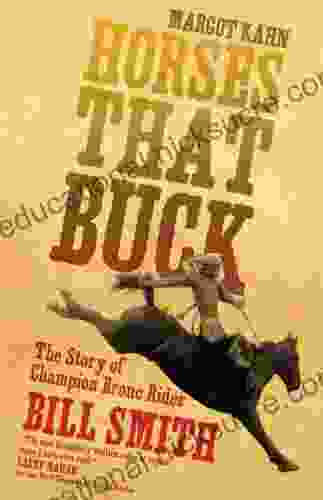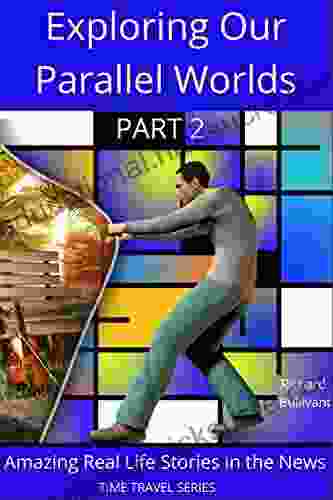On the Origin of Species: A Comprehensive Overview and Analysis

Charles Darwin's "On the Origin of Species" is a groundbreaking work that revolutionized the scientific understanding of evolution and the natural world. Published in 1859, it presented a compelling argument for the theory of evolution by natural selection, which has since become a cornerstone of modern biology.
This comprehensive article provides an in-depth overview and analysis of "On the Origin of Species." We will explore the key concepts, arguments, and evidence presented by Darwin, examining their impact on the scientific understanding of evolution and the natural world.
4.7 out of 5
| Language | : | English |
| File size | : | 891 KB |
| Text-to-Speech | : | Enabled |
| Screen Reader | : | Supported |
| Enhanced typesetting | : | Enabled |
| Word Wise | : | Enabled |
| Print length | : | 554 pages |
Key Concepts
- Variation: Darwin observed that there is significant variation within populations of organisms, both within a species and between species.
- Inheritance: Darwin recognized that many variations are heritable, meaning they can be passed down from parents to offspring.
- Natural Selection: Darwin proposed that individuals with traits that make them better adapted to their environment are more likely to survive and reproduce, passing on their advantageous traits to their offspring.
- Adaptation: Over time, natural selection leads to the accumulation of beneficial traits in a population, resulting in adaptations that enhance an organism's survival and reproductive success.
- Common Descent: Darwin argued that all living organisms share a common ancestry, having evolved from a single, ancestral form over time.
Arguments and Evidence
Darwin presented several lines of evidence to support his theory of evolution by natural selection:
- Fossil Record: The fossil record provides evidence of extinct species that resemble living organisms, suggesting a gradual change over time.
- Comparative Anatomy: Similarities in the anatomical structures of different species indicate a shared ancestry.
- Biogeography: The distribution of species around the world can be explained by their evolutionary history and adaptations to different environments.
- Artificial Selection: Darwin drew parallels between the selective breeding of plants and animals by humans and natural selection in the wild.
Impact and Legacy
"On the Origin of Species" had a profound impact on the scientific community and beyond:
- Established Evolution as a Scientific Theory: Darwin's work provided a comprehensive explanation for the diversity of life and the processes that drive evolutionary change.
- Challenged Religious Beliefs: Darwin's theory conflicted with traditional religious views of creation, leading to a heated debate on the origins of life.
- Inspired New Fields of Research: "On the Origin of Species" stimulated research in genetics, paleontology, and other fields related to evolution.
- Influenced Social and Cultural Thought: Darwin's ideas had a ripple effect on fields such as sociology, psychology, and philosophy, shaping our understanding of human nature and society.
Criticisms and Controversies
While "On the Origin of Species" is widely regarded as a seminal work, it has also faced criticism and controversy:
- Incomplete Understanding: Darwin did not fully understand the mechanisms of inheritance and genetic variation, which were later elucidated by Gregor Mendel.
- Gradualism vs. Punctuated Equilibrium: Some scientists have challenged Darwin's view of gradual evolution, proposing that punctuated equilibrium, involving periods of rapid change, may also play a role.
- Creationism vs. Evolution: Religious and ideological opposition to the theory of evolution has persisted, leading to debates over the inclusion of evolution in school curricula.
Charles Darwin's "On the Origin of Species" remains a foundational work in the history of science, revolutionizing our understanding of evolution and the natural world. Its key concepts, arguments, and evidence have shaped the course of scientific inquiry and continue to inspire and challenge scientists and thinkers today.
Despite some ongoing controversies and areas of ongoing research, "On the Origin of Species" stands as a testament to the power of scientific inquiry and the enduring legacy of one of the most influential minds in human history.
4.7 out of 5
| Language | : | English |
| File size | : | 891 KB |
| Text-to-Speech | : | Enabled |
| Screen Reader | : | Supported |
| Enhanced typesetting | : | Enabled |
| Word Wise | : | Enabled |
| Print length | : | 554 pages |
Do you want to contribute by writing guest posts on this blog?
Please contact us and send us a resume of previous articles that you have written.
 Fiction
Fiction Non Fiction
Non Fiction Romance
Romance Mystery
Mystery Thriller
Thriller SciFi
SciFi Fantasy
Fantasy Horror
Horror Biography
Biography Selfhelp
Selfhelp Business
Business History
History Classics
Classics Poetry
Poetry Childrens
Childrens Young Adult
Young Adult Educational
Educational Cooking
Cooking Travel
Travel Lifestyle
Lifestyle Spirituality
Spirituality Health
Health Fitness
Fitness Technology
Technology Science
Science Arts
Arts Crafts
Crafts DIY
DIY Gardening
Gardening Petcare
Petcare James Berry
James Berry Educational Brain Games
Educational Brain Games Kinley Macgregor
Kinley Macgregor Sabrina Chevannes
Sabrina Chevannes Atul K Mehra
Atul K Mehra Jessica Speer
Jessica Speer Michael J Mauboussin
Michael J Mauboussin Christian Heath
Christian Heath Edmund Nequatewa
Edmund Nequatewa Melisenda Edwards
Melisenda Edwards Neil Harman
Neil Harman Rupert Sheldrake
Rupert Sheldrake Sean Bloomfield
Sean Bloomfield Carolyn Coker Ross
Carolyn Coker Ross Sam Fels
Sam Fels Andrew Lawler
Andrew Lawler Andrew Peterson
Andrew Peterson Bridgit Danner Lac
Bridgit Danner Lac John Daido Loori
John Daido Loori Morten Lund
Morten Lund Stephen Cole
Stephen Cole Jen Benson
Jen Benson Andrew Reeves
Andrew Reeves Sara T Gibbs
Sara T Gibbs Kathleen Huggins
Kathleen Huggins Tiffany Harelik
Tiffany Harelik Anthony Bishop Lmft
Anthony Bishop Lmft Portia Macintosh
Portia Macintosh Helen O Neil
Helen O Neil Nick Jaffe
Nick Jaffe Helene Henderson
Helene Henderson Tony Ray
Tony Ray Lucy Atkins
Lucy Atkins Nancy Frey
Nancy Frey Piero Ferrucci
Piero Ferrucci Andrew J Wakefield
Andrew J Wakefield L Kathleen Mahan
L Kathleen Mahan Cathy Kelly
Cathy Kelly Christopher Dunn
Christopher Dunn Seabury Quinn
Seabury Quinn Jack David Eller
Jack David Eller Gordon Webster
Gordon Webster Damon Wiseley
Damon Wiseley Linda Goldberg
Linda Goldberg Dave Chambers
Dave Chambers Jaimal Yogis
Jaimal Yogis Richard Bullivant
Richard Bullivant Andy Crouch
Andy Crouch Winifred Gallagher
Winifred Gallagher J K Rowling
J K Rowling Dan Orr
Dan Orr Tom Holland
Tom Holland V S Ramachandran
V S Ramachandran Tom Bertrand
Tom Bertrand Nelson L Schuman
Nelson L Schuman Luca Brambilla
Luca Brambilla Mark Vella
Mark Vella Mawi Asgedom
Mawi Asgedom Touko Amekawa
Touko Amekawa David Sowell
David Sowell P Anastasia
P Anastasia Stephan Lee
Stephan Lee Clinton Anderson
Clinton Anderson Mark Mcclusky
Mark Mcclusky Andy Ankowski
Andy Ankowski Luna Fox
Luna Fox Robert Parris Moses
Robert Parris Moses Vanessa A P
Vanessa A P Claire Ahn
Claire Ahn Marcus Tomlinson
Marcus Tomlinson Beverly Asante Puschmann
Beverly Asante Puschmann Rolf Potts
Rolf Potts Heidi Dais
Heidi Dais Jonathan Bennett
Jonathan Bennett Michael J Thompson
Michael J Thompson Molly E Lee
Molly E Lee Stephon Alexander
Stephon Alexander Philip Reeve
Philip Reeve Damon B Akins
Damon B Akins Shonda Rhimes
Shonda Rhimes Simson L Garfinkel
Simson L Garfinkel Shannon Jensen
Shannon Jensen Christopher O Shaughnessy
Christopher O Shaughnessy Mary Sheedy Kurcinka
Mary Sheedy Kurcinka Julia Cameron
Julia Cameron Ricky Roberts Iii
Ricky Roberts Iii Robert N Wiedenmann
Robert N Wiedenmann Linda Whitenton
Linda Whitenton Omar D Lewis Sr
Omar D Lewis Sr Steve Lage
Steve Lage Ross Bernstein
Ross Bernstein Tom Doak
Tom Doak Mary H K Choi
Mary H K Choi Bruno David
Bruno David John Sefton
John Sefton Mallory Striesfeld Ms Lpc
Mallory Striesfeld Ms Lpc Jay Sokolovsky
Jay Sokolovsky Charles Darwin
Charles Darwin Andrew Hudson
Andrew Hudson Andrew Stellman
Andrew Stellman Madeleine L Engle
Madeleine L Engle Martin Woodward
Martin Woodward Ruth E Van Reken
Ruth E Van Reken The Car Crash Detective
The Car Crash Detective Laurie David
Laurie David David Hawkins
David Hawkins Dawne Archer
Dawne Archer Davida Hartman
Davida Hartman Rolf Dobelli
Rolf Dobelli Lauren Conrad
Lauren Conrad Timothy Gordon
Timothy Gordon Sharae Moore
Sharae Moore Lisa Bevere
Lisa Bevere Marie Sherlock
Marie Sherlock Rosicrucian Order Amorc
Rosicrucian Order Amorc Chris Rodell
Chris Rodell Marianne Ryan
Marianne Ryan Andrew Warnes
Andrew Warnes Sebastian Deterding
Sebastian Deterding Claire Phillips
Claire Phillips William J Broad
William J Broad Jeffro Johnson
Jeffro Johnson M J Abadie
M J Abadie Jason R Rich
Jason R Rich Sean B Carroll
Sean B Carroll Jerusha Clark
Jerusha Clark Andrew Hartman
Andrew Hartman Mark Lester
Mark Lester Andrew Jamieson
Andrew Jamieson Eli Maor
Eli Maor Elizabeth Acevedo
Elizabeth Acevedo Vincent Norman
Vincent Norman Dan Werb
Dan Werb Charles Cooper
Charles Cooper Joya Goffney
Joya Goffney W Somerset Maugham
W Somerset Maugham Aaron Edkins
Aaron Edkins Peter Compton
Peter Compton Christine Moore
Christine Moore Justin Fox Burks
Justin Fox Burks Fiona Higgins
Fiona Higgins Tom Chesshyre
Tom Chesshyre M L Ray
M L Ray Zhongxian Wu
Zhongxian Wu Sarah Edmondson
Sarah Edmondson John H Carroll
John H Carroll Justine Bold
Justine Bold Ben Foss
Ben Foss Robert M Schoch
Robert M Schoch Robert Holdstock
Robert Holdstock Mark Hyman
Mark Hyman Kevin Shea
Kevin Shea Nancy Wainer Cohen
Nancy Wainer Cohen Roger Highfield
Roger Highfield Brock Lesnar
Brock Lesnar Lisa Silverman
Lisa Silverman Andrew Hodges
Andrew Hodges Shari Mezrah
Shari Mezrah Dustin Howe
Dustin Howe Sam Maggs
Sam Maggs Samara Caughey
Samara Caughey Sarah Castille
Sarah Castille Judith A Cohen
Judith A Cohen Ashley Schmitt
Ashley Schmitt Behrouz Moemeni
Behrouz Moemeni Richard G Klein
Richard G Klein Xan Barksdale
Xan Barksdale Elizabeth Walter
Elizabeth Walter Bryan Mellonie
Bryan Mellonie Monica Clyde
Monica Clyde Michaela Deprince
Michaela Deprince Reid Sheftall M D
Reid Sheftall M D Loris Chen
Loris Chen Charlie Jones
Charlie Jones Rory Stewart
Rory Stewart Teresa M Twomey
Teresa M Twomey Dan Anderson
Dan Anderson Walter Martin
Walter Martin Lynn Painter
Lynn Painter Diane Tober
Diane Tober Thomas F Hornbein
Thomas F Hornbein David Stipp
David Stipp Michael Barela
Michael Barela Leslie Klenke
Leslie Klenke Dawn Isaac
Dawn Isaac Dan Allan
Dan Allan Kevin Thomas
Kevin Thomas Geraldine Woods
Geraldine Woods Marsha Walker
Marsha Walker Tina H Boogren
Tina H Boogren Frances A Yates
Frances A Yates Suzanne Van Atten
Suzanne Van Atten Carla Hannaford
Carla Hannaford Lauren Kate
Lauren Kate Jill Squyres Groubert Phd
Jill Squyres Groubert Phd Brian Grossenbacher
Brian Grossenbacher S G Taylor
S G Taylor Christopher Vaughan
Christopher Vaughan Rita Jablonski
Rita Jablonski Paul Davies
Paul Davies Margot Kahn
Margot Kahn William Ma
William Ma Carl Hart
Carl Hart Rosalind Miles
Rosalind Miles Mark Needham
Mark Needham Eddy Starr Ancinas
Eddy Starr Ancinas Rudy Rucker
Rudy Rucker Melody Groves
Melody Groves Glenn Berkenkamp
Glenn Berkenkamp Dennis J Stanford
Dennis J Stanford Howard Thurman
Howard Thurman Stephen Prata
Stephen Prata Emilie Bailey
Emilie Bailey Aristeidis Bampakos
Aristeidis Bampakos Lauren James
Lauren James J D Lenzen
J D Lenzen Michelle Madow
Michelle Madow Patrick Felicia
Patrick Felicia Sol Adoni
Sol Adoni Jennifer M Rosner
Jennifer M Rosner Jim Flynn
Jim Flynn K L Walther
K L Walther Akil Palanisamy
Akil Palanisamy Connie Goldsmith
Connie Goldsmith Emily Wibberley
Emily Wibberley Jerry M Gutlon
Jerry M Gutlon Rhianna Pratchett
Rhianna Pratchett Laird Scranton
Laird Scranton Stephen Rea
Stephen Rea Sarah Pinborough
Sarah Pinborough Antonio Pigafetta
Antonio Pigafetta Carolyn S Schroeder
Carolyn S Schroeder Leigh Bernacchi
Leigh Bernacchi John Atherton
John Atherton Peggy Orenstein
Peggy Orenstein Justine Bateman
Justine Bateman Rosita Boland
Rosita Boland Mikael Krief
Mikael Krief Jonathan Scott
Jonathan Scott Tami Fox
Tami Fox James R Hansen
James R Hansen Bill Pennington
Bill Pennington Erika V Shearin Karres
Erika V Shearin Karres Daniel W Cunningham
Daniel W Cunningham Stephen James
Stephen James Hope Jahren
Hope Jahren Benedict Goleman
Benedict Goleman Kuldeep Singh
Kuldeep Singh Sheryl Feinstein
Sheryl Feinstein Christine Carter
Christine Carter Paul Seabright
Paul Seabright Fred Rogers
Fred Rogers Hugh P Mckenna
Hugh P Mckenna Uma Dinsmore Tuli
Uma Dinsmore Tuli Jennie Lynn Gillham
Jennie Lynn Gillham Andrew Hempstead
Andrew Hempstead John Macgregor
John Macgregor Donn F Draeger
Donn F Draeger Sendhil Mullainathan
Sendhil Mullainathan Chaz Scoggins
Chaz Scoggins Peter Kaminsky
Peter Kaminsky Emily Kerr
Emily Kerr Gladstone Califf
Gladstone Califf Susana Wald
Susana Wald Kirk W Johnson
Kirk W Johnson Carl Allchin
Carl Allchin Jim Hardy
Jim Hardy Chris Mcmullen
Chris Mcmullen T H Lain
T H Lain Andrew X Pham
Andrew X Pham Nicholas D Souza
Nicholas D Souza Prosanta Chakrabarty
Prosanta Chakrabarty Tanya Crossman
Tanya Crossman Caroline Finnerty
Caroline Finnerty Shannon Brown
Shannon Brown Sharon A Hansen
Sharon A Hansen Tom Rosenbauer
Tom Rosenbauer Eric H Cline
Eric H Cline Andrew Phillip Smith
Andrew Phillip Smith Erin Macpherson
Erin Macpherson Gary Todd
Gary Todd Mike Wells
Mike Wells Marissa Meyer
Marissa Meyer Gordon W Green
Gordon W Green Sadhguru
Sadhguru Bryan Sykes
Bryan Sykes Daniel Mark Brown
Daniel Mark Brown Andrew Zerling
Andrew Zerling Ruta Sepetys
Ruta Sepetys Donna Tartt
Donna Tartt Stephen Howe
Stephen Howe Gene Stone
Gene Stone Kevin Anderson
Kevin Anderson Monty Roberts
Monty Roberts George W Hart
George W Hart Joseph Bronson
Joseph Bronson Tim Huffman
Tim Huffman Sally Bjornsen
Sally Bjornsen Maggie Ryan
Maggie Ryan Michael Epperson
Michael Epperson Carl Petersen
Carl Petersen James D Watson
James D Watson Jay Arthur
Jay Arthur John Lofty Wiseman
John Lofty Wiseman Patrick Barrett
Patrick Barrett Jordan Ellenberg
Jordan Ellenberg Eva Longoria
Eva Longoria Joey Rive
Joey Rive Palle Yourgrau
Palle Yourgrau Delphi Classics
Delphi Classics Ron Hackett
Ron Hackett Peter D Jeans
Peter D Jeans Bronwen Skye
Bronwen Skye Dr John Hockey
Dr John Hockey Carson Mccullers
Carson Mccullers Stan Tekiela
Stan Tekiela James P Sethna
James P Sethna Sally Cook
Sally Cook Larry Jacobson
Larry Jacobson Helene St James
Helene St James Nicholas Harvey
Nicholas Harvey Diane R Gehart
Diane R Gehart Rhonda V Magee
Rhonda V Magee Natalie Babbitt
Natalie Babbitt Vibrant Publishers
Vibrant Publishers Ernest Becker
Ernest Becker Catherine Gildiner
Catherine Gildiner Jerry Z Muller
Jerry Z Muller Shannon Van Den Berg
Shannon Van Den Berg Sadie Robertson
Sadie Robertson Edward C Klatt
Edward C Klatt Andrew Lang
Andrew Lang Rachel Lynn Solomon
Rachel Lynn Solomon Andrius Jac
Andrius Jac Guns Ammo
Guns Ammo Jared Benson
Jared Benson Des Hewitt
Des Hewitt Michael Polanyi
Michael Polanyi Lisa Cron
Lisa Cron Jonathan C Slaght
Jonathan C Slaght Madeleine Roux
Madeleine Roux Liz Prince
Liz Prince Ed Rosenthal
Ed Rosenthal Annette K Larsen
Annette K Larsen William Mark Huey
William Mark Huey Adam Minter
Adam Minter Rob Eastaway
Rob Eastaway Daniel D Fox
Daniel D Fox Andrew Thompson
Andrew Thompson John Mcphee
John Mcphee Gina M Biegel
Gina M Biegel Timothy Ferris
Timothy Ferris Zita Grant
Zita Grant Jamie Christian Desplaces
Jamie Christian Desplaces Andrew Heywood
Andrew Heywood John Helyar
John Helyar Brianne Donaldson
Brianne Donaldson Lawrence Dawson
Lawrence Dawson Stacey Lee
Stacey Lee Becky Albertalli
Becky Albertalli Wendy Bryden
Wendy Bryden Ira J Chasnoff
Ira J Chasnoff Hp Newquist
Hp Newquist Lisa Roberts
Lisa Roberts Andrew Nahum
Andrew Nahum Ruth Haley Barton
Ruth Haley Barton Jim Burnett
Jim Burnett Elianor M A
Elianor M A Brian L Silver
Brian L Silver Vivien Newman
Vivien Newman John Eberhart
John Eberhart William E Hearn
William E Hearn Jennie Erin Smith
Jennie Erin Smith Debbie Felkins Tamez
Debbie Felkins Tamez Antipodean Writer
Antipodean Writer Rachel E Spector
Rachel E Spector Miles Smeeton
Miles Smeeton Ilene And Gary Modica
Ilene And Gary Modica Ginger Scott
Ginger Scott Janis Abrahms Spring
Janis Abrahms Spring Slow Sprint
Slow Sprint Pawel Guziejko
Pawel Guziejko N S Wikarski
N S Wikarski Michio Kaku
Michio Kaku Gordon Churchill
Gordon Churchill Edgar H Schein
Edgar H Schein Elijah N Daniel
Elijah N Daniel Briana Wiles
Briana Wiles Bill Dance
Bill Dance Garth Nix
Garth Nix Mirabai Starr
Mirabai Starr Julie Lythcott Haims
Julie Lythcott Haims Erwin Schrodinger
Erwin Schrodinger Tim Clarkson
Tim Clarkson Arthur Kleinman
Arthur Kleinman Nadia Shammas
Nadia Shammas Quick Guide
Quick Guide Michael F Roizen
Michael F Roizen Jason William
Jason William Andrew Robinson
Andrew Robinson Ruth Bell Graham
Ruth Bell Graham Sue Fleming
Sue Fleming E K Johnston
E K Johnston Mark Cannizzaro
Mark Cannizzaro Kathrine Switzer
Kathrine Switzer Marcos Romero
Marcos Romero Seth J Gillihan Phd
Seth J Gillihan Phd Nina Varela
Nina Varela Alexander Bennett
Alexander Bennett Andrew M Greeley
Andrew M Greeley Cary Hanson
Cary Hanson Robert Kurson
Robert Kurson Bob Brier
Bob Brier Dora Kurimay
Dora Kurimay Jennifer Lw Fink Rn Bsn
Jennifer Lw Fink Rn Bsn Richard Twiss
Richard Twiss Jakob Schwichtenberg
Jakob Schwichtenberg Betty Smith
Betty Smith Chaim Potok
Chaim Potok Thomas Clarkson
Thomas Clarkson Jessie Cal
Jessie Cal Nicholas J Higham
Nicholas J Higham Cassandra Erkens
Cassandra Erkens Judy Ford
Judy Ford Henry Fielding
Henry Fielding Kay Pranis
Kay Pranis C Todd Lombardo
C Todd Lombardo Rick Scoppe
Rick Scoppe Melanie Burnell
Melanie Burnell Stanley L Jaki
Stanley L Jaki Maggie Stiefvater
Maggie Stiefvater Yasuharu Okuda
Yasuharu Okuda Andrew Moore
Andrew Moore Rainer Martens
Rainer Martens Fourth Edition Kindle Edition
Fourth Edition Kindle Edition Pseudo Nym
Pseudo Nym Michele Amitrani
Michele Amitrani Jon Paschetto
Jon Paschetto Daniel Tammet
Daniel Tammet Bruce H Lipton
Bruce H Lipton Mark Vanhoenacker
Mark Vanhoenacker Marian Stamp Dawkins
Marian Stamp Dawkins J Richard Hackman
J Richard Hackman Jenny Randles
Jenny Randles Kent Nerburn
Kent Nerburn Ehsan Masood
Ehsan Masood Sian Beilock
Sian Beilock Andy Burnham
Andy Burnham Carolyn Savage
Carolyn Savage Fatime Losonci
Fatime Losonci Jon Gertner
Jon Gertner Carla Killough Mcclafferty
Carla Killough Mcclafferty Dr Sarah Mitchell
Dr Sarah Mitchell Xavier P Hunter
Xavier P Hunter Guy Windsor
Guy Windsor H A Lorentz
H A Lorentz Nigel Calder
Nigel Calder David Jefferson
David Jefferson Angela Berkfield
Angela Berkfield George H Odell
George H Odell Teresa Palmer
Teresa Palmer Sarah Digregorio
Sarah Digregorio Kirk Goldsberry
Kirk Goldsberry Richelle Mead
Richelle Mead George Washington Cable
George Washington Cable Andrew H Knoll
Andrew H Knoll John R Anderson
John R Anderson Anne Marie Scully
Anne Marie Scully Andrew Shaw
Andrew Shaw Ronald T Kneusel
Ronald T Kneusel David A French
David A French Chris Dowhan
Chris Dowhan Nick Estes
Nick Estes Joy Vines
Joy Vines Christopher Hodapp
Christopher Hodapp W Michael Kelley
W Michael Kelley Gila Leiter
Gila Leiter Chelsea Johnson
Chelsea Johnson Claiborne Young
Claiborne Young Slavka Bodic
Slavka Bodic William Gurstelle
William Gurstelle David Carrasco
David Carrasco Harvey Motulsky
Harvey Motulsky Master Wong
Master Wong Samuel Hideo Yamashita
Samuel Hideo Yamashita Stephanie V W Lucianovic
Stephanie V W Lucianovic Clare Keyes
Clare Keyes Mona Liza Santos
Mona Liza Santos Gordon Wright
Gordon Wright Kris Holloway
Kris Holloway K A Linde
K A Linde Christine Pearson Casanave
Christine Pearson Casanave Laird Hamilton
Laird Hamilton Kari Kampakis
Kari Kampakis Gabriel Weinberg
Gabriel Weinberg J P Mcevoy
J P Mcevoy Mike Cohn
Mike Cohn Howling Moon Books
Howling Moon Books Rami Ungar
Rami Ungar Rachel Pepper
Rachel Pepper Texes Exam Secrets Test Prep Team
Texes Exam Secrets Test Prep Team Jamie Thornton
Jamie Thornton
Light bulbAdvertise smarter! Our strategic ad space ensures maximum exposure. Reserve your spot today!

 George R.R. MartinHow to Compete with Your Team: A Training Days Week Guide for Football...
George R.R. MartinHow to Compete with Your Team: A Training Days Week Guide for Football... Felix CarterFollow ·18.2k
Felix CarterFollow ·18.2k Brayden ReedFollow ·10.9k
Brayden ReedFollow ·10.9k Rex HayesFollow ·9k
Rex HayesFollow ·9k Fernando BellFollow ·2k
Fernando BellFollow ·2k Camden MitchellFollow ·12k
Camden MitchellFollow ·12k Mike HayesFollow ·6.7k
Mike HayesFollow ·6.7k Branson CarterFollow ·8.1k
Branson CarterFollow ·8.1k Vince HayesFollow ·6.7k
Vince HayesFollow ·6.7k

 Craig Blair
Craig BlairThe Story of Champion Bronc Rider Bill Smith: A Legacy of...
In the annals of rodeo...

 H.G. Wells
H.G. WellsAmazing Real Life Stories In The News
The news is often...

 Jordan Blair
Jordan Blair35 Wellness Walks to Expand Awareness, Increase Vitality,...
In an era where technology...

 Edward Reed
Edward ReedCycling London to Paris: An Epic Adventure in the Making
Are you ready for the...

 Edgar Hayes
Edgar HayesEveryday Steps For Putting Technology In Its Proper Place
Are you constantly...

 Mitch Foster
Mitch FosterSat Math Mastery Advanced Algebra Geometry And Statistics
SAT Math Mastery Advanced Algebra Geometry...
4.7 out of 5
| Language | : | English |
| File size | : | 891 KB |
| Text-to-Speech | : | Enabled |
| Screen Reader | : | Supported |
| Enhanced typesetting | : | Enabled |
| Word Wise | : | Enabled |
| Print length | : | 554 pages |










